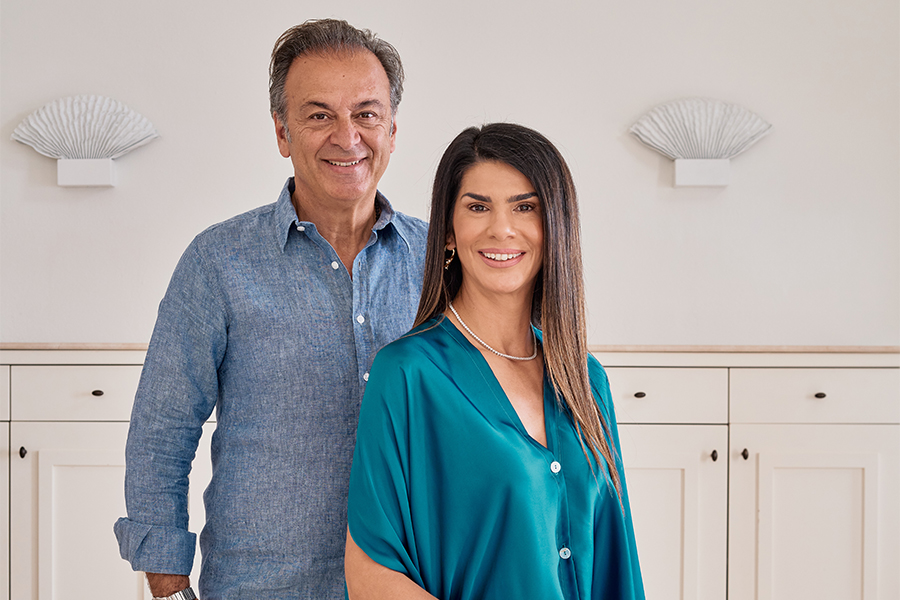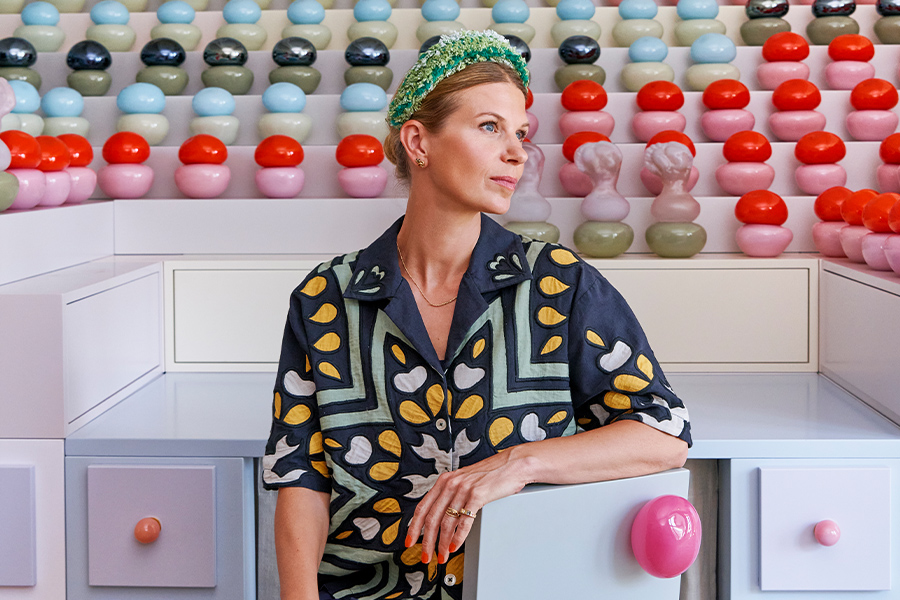Photography by Francesco Fioramonti, Roberto Bonardi, and Tommy Picone
Growing up, Italian-born Niko Romito was never that interested in cooking, despite his father owning a bakery in Abruzzo. But as fate would have it, Romito ended up taking over his father’s restaurant Reale when he died in 2000. Perhaps it’s luck, or just good genes, but the family restaurant, which he runs with his sister Cristiana, has become something of a destination, earning three Michelin stars and a move to boutique hotel Casadonna, a 16th-century former monastery in Castel di Sangro. Today, the self-taught chef has a thriving partnership with Bulgari and continues to grow his business with outposts like casual spot Bomba, a nod to his favorite pastry.
On becoming a chef
My father’s pastry shop [opened from 1970 to 2000] has always been deeply meaningful to me. I spent many years of my childhood there and always returned to Abruzzo for the holidays. I used to eat bomba, a krapfen-like pastry, and it was the only thing I was happy to eat every morning. When my father died, his restaurant Reale just opened, and I decided to keep it open during the summer season and then sell it to return to Rome, where I had been living. At that time, I was studying economics, and I wanted to become a broker. I had five exams to take to complete my degree, and no culinary experience at all. I realized I had to make a choice, and I decided to join my sister Cristiana in the challenge of taking over the family restaurant. While I was not sure I made the right decision back then, I followed my instinct and welcomed this new experience without any safety net. Our initial efforts at Reale were driven largely by improvisation and survival instinct, accompanied by relentless research and a strong entrepreneurial attitude.
On his fast-tracked education
I’m a self-taught chef. When I started at Reale, I realized I needed to acquire a solid technical and theoretical foundation, so I took a couple of short courses while working in the kitchen. I spent 20 days in Girona, Spain at El Celler de Can Roca, which had two Michelin stars at the time (now three), and I realized I needed to change direction. My encounter with chef Valeria Piccini and her husband Maurizio Menichetti at two Michelin-starred Da Caino in Montemerano, Italy was serendipitous. The personal and professional relationship still continues to this day.
I was incurably curious. Every free moment I had was spent in the pages of a book or at the table of a colleague. All these different experiences shaped my new vision of cuisine. I learned the value of working with local products and producers, the meaning of respecting the essence of raw materials, and the importance of creating a familiar and respectful atmosphere inside the restaurant among the staff.
On his roots
The greatest luxury for me is living in Abruzzo. My cuisine comes from the land, the local producers, the mountain, and its silence. The region runs deep in my work. My early dishes were centered on the local gastronomic tradition, though in time, my work has gradually shifted—an emancipation of sorts. I still draw on Abruzzo for the best ingredients, and for me, the region represents the ideals of truth, reassurance, and quality.





